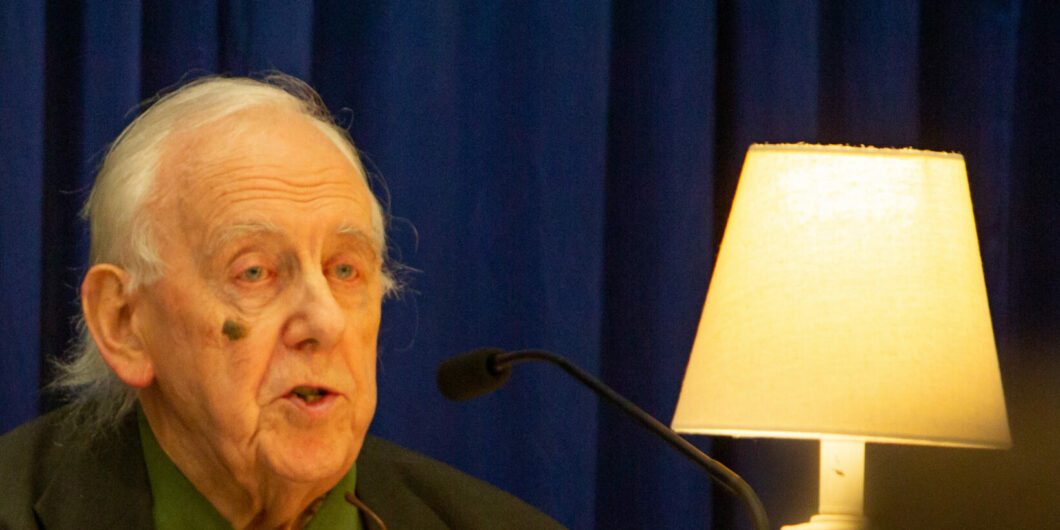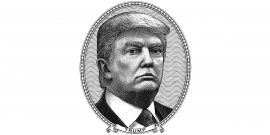American higher education needs institutional pluralism.
Just a Social Animal?
Pierre Manent began his Foreword to Émile Perreau-Saussine’s award-winning critical study of Alasdair MacIntyre, originally published in French in 2005 and recently translated and published in English, with the ringing words, “Liberalism, that’s the enemy!” He went on to make clear that this was not his own view, but his observation of a widespread opinion that cast its shadow over liberal democracy in the West. There was a paradox here: having defeated its two great twentieth-century totalitarian opponents, and thus in many ways freed from political challenge, the liberal West nonetheless harbored within itself radical critics of the left and the right. Perceptive and pertinent in 2005, the observation has only grown in truth since then.
On the left, what John Fonte called “transnational progressivism” takes direct aim at classical liberalism in its principles and constitutional and societal norms. On the right, Catholic circles see the increased salience of a cohort of “Integralists” who claim to be faithful to the authoritative tradition of Catholic social thought in their opposition to liberalism, as well as an active group of self-proclaimed “postliberal” thinkers who put forth alternatives to it under such rubrics as “common good constitutionalism.” In various ways, they accept and follow in the pioneering footsteps of Alasdair MacIntyre, who, throughout a long and vicissitudinous career, has been a constant critic of liberalism. Indeed, according to Perreau-Saussine, “the critique of liberalism is at once the basso continuo and the final cause of his work.”
Given the status of MacIntyre in the antiliberal firmament, in the early 2000s, Perreau-Saussine decided to devote a study to this consequential figure. As Manent put it, for Perreau-Saussine, MacIntyre was a cas eminent, a preeminent and therefore illustrative case, for the study of the strengths and weaknesses of moral-political thought that takes its motivation from an animus, antiliberalism. And indeed, in Perreau-Saussine’s judgment, studying MacIntyre’s breathtaking intellectual peripeties, with their constant antiliberal lodestar, brings to light two important broader realities, one historical, the other structural: “His trajectory enables us to take another look at a great part of the history of the intellectual opposition to bourgeois individualism, and the internal tensions in his thought convey the tensions proper to this opposition.” The Communist Party Marxist-turned-New Left Trotskyite-turned Wittgensteinian Aristotelian-turned-“tradition-minded” Thomist covered many of the bases when it came to twentieth-century antiliberal thought and revulsion.
In Manent’s judgment, thought animated by animus runs the risk of being inequitable and unjust to its hated target. Genuine philosophical thought avoids that temptation. In the instant case, Manent states:
The critique of liberalism that would only define it by its errors lacks plausibility. We need to explain a bit why liberalism is still stronger than our good Aristotelian reasons. Or, Perreau-Saussine suggests, might this be because we confuse liberal politics with its most abstract philosophical formulations, or with its most ideological political formulations?
Abstract philosophical formulations and ideological political ones are inadequate to the full reality of liberal democracy. For that, one needs a broader perspective and a larger lexicon.
Perreau-Saussine, therefore, conducted his study from the perspective that promised such capacious equanimity, that of political philosophy. Here was a fruitful paradox: the discipline that gave rise to liberalism could also take its measure, as well as help shore up its deficiencies. In so doing, he inserted himself in a certain tradition of thought, what one could call the friendly critics of liberalism. As Perreau-Saussine states: “This is what authors like Jacques Maritain (after the Second World War) and Bertrand de Jouvenel do; or today [circa 2005], what John Finnis, David Wiggins, and Vincent Descombes do.”
To this list, one could add Yves Simon and Manent himself, and American authors, Christopher Wolfe and Jay Budziszewski, who brought the riches of natural law thinking and classical political thought to bear on modern liberalism in order to critique and enrich it. Daniel J. Mahoney is perhaps the leading contemporary exponent of this sort of critical engagement with liberalism. His notion of “the conservative foundations of liberal order”—the title of one of his books—expresses the basic position: liberalism needs pre- or extra-liberal components to exist, to survive, and to thrive. Perreau-Saussine summed up the needed operation as follows:
To the extent that liberal democracy imposes itself and proves its worth, it becomes more artificial to insist on the primacy of evil [as did its modern philosophical exponents] and more tempting to offer an Aristotelian-inspired reinterpretation of the regime. We can thus show that liberalism cultivates certain veritable goods, starting with concord and justice. We can describe liberalism as a mixed regime, which, by means of representation, reconciles democratic and aristocratic elements, harmonizing their respective parts to consent and wisdom. We can elaborate an analysis of liberal democracy in terms of the natural law and the common good. From this point of view, a durable and satisfying political regime is achieved less by a balance of evils than by a dynamic of the good. The liberalism that avoids evil does not forbid the liberalism that looks for the good.
Here is an agenda that does not throw the baby out with the bathwater, but rather calls for a complex (and continuous) act of mediation—of creative synthesis—of erstwhile opponents.
Moreover, as the previous passage indicates, it is an agenda that requires the full range of political philosophical categories, starting with two in particular:
The critiques of liberalism studied here come after the failure of the great antiliberal waves: socialism, fascism, Nazism, and Marxist-Leninism. They do not cast doubt on liberal democracy as a political form or political regime, even though they criticize the way in which most theorists give an account of liberal democracy, and they warn against the atomist, relativist, and finally nihilist dynamic of a certain liberalism (italics in the original).
Here is political philosophy busy-at-work: distinguishing (and connecting) regime and form, the two essential components of political life; distinguishing and critiquing theories and historical reality and practice; and knowing that any and all regime principles tend to extremes and that it is a perennial task of political philosophy to moderate that natural dynamic in the name of, and for the sake of, the regime and its moral-political health.
In Perreau-Saussine’s judgment, MacIntyre can help significantly in this endeavor, principally by reminding us of what freedom is for: the goods of human action and community and (some of) their essential conditions and components, such as practical reasoning, humanizing traditions, and the importance of “practices” to a life well-lived. But to do so he must be critically appraised, his blindspots and injustices acknowledged, along with his strengths and contributions. This is the fruitful ambiguity—or basic aim—of Perreau-Saussine’s analysis of MacIntyre’s constantly evolving thought.
To do so, he takes a MacIntyre-focused tour through three topics: twentieth-century politics, philosophy, and theology. They form a whole, as they continually develop an understanding of MacIntyre’s thought in its essential dimensions and constants, as well as its numerous peripeties. Together, they go “to establish that his intellectual journey [indeed] clarifies the history and the nature of anti-individualism.”
MacIntyre replaces the political animal with the social animal. In this substitution, the full range of human nature explored by Aristotle suffers eclipse.
Space limitations prohibit me from laying out anything of the wealth of Perreau-Saussine’s presentation of thinkers and landscapes gone-by. The reader cannot fail to be impressed by its author’s sure hand, and even more impressed when he recalls that these distilled accounts of twentieth-century politics and political thought, philosophy, and theology were drawn by a Frenchman originally for a French readership: he knew twentieth-century Great Britain and America better than many citizens of both countries, then and now. One of the benefits of reading this learned trip-down-memory lane is broader self-knowledge for us Anglophones. We acquire genealogical knowledge of where many of our antiliberal ideas and positions have come from and how they fared when tested by history, as well as when subject to the self-criticism of their earlier proponents. I venture to say that for some indeterminate number on today’s antiliberal New Right, Lord Acton’s dictum will again prove its “embarrassing” truth.
In her recent review of the book, Rachel Lu developed MacIntyre’s positive contributions concerning practical reason, traditions, and practice. Granting those, I would like to close by indicating something of the other side of the coin, to which Perreau-Saussine paid equal attention. The basic critique, which branches off in several directions, can be summed up as follows: MacIntyre is a “curious,” that is, significantly truncated, Aristotelian. “He tends to sacrifice political philosophy to moral philosophy.” Textually put—but with substantive consequences—he ignores the Politics and good chunks of the Nicomachean Ethics that bear on political life—nowhere to be found is the phronēsis of the statesman, magnanimity, civic friendship, or even the eternal debate between the few and the many, which political philosophy is especially tasked with adjudicating.
This entails that MacIntyre’s “response to the prevailing malaise is less through political participation and more through subpolitical or transpolitical communities.” Or again: “Against the dissolution of the social bond and against the rule of manipulation, he counters less with patriotism and more with morally satisfying forms of life.” Perreau-Saussine perceptively observes that “in this respect, MacIntyre could remain faithful to the Marxist critique of politics.” When he does turn to liberal politics, “his political thought is unilateral, and, truth be told, it is in many respects rather poor: he remains silent on war, rule of law, separation of powers, and civil liberties.” One need not be Publius to know that a critique of liberalism silent on these matters is grossly inadequate.
One can put the matter another way: MacIntyre replaces the political animal with the social animal. In this substitution, the full range of human nature explored by Aristotle suffers eclipse. Such an eclipse almost inevitably leads to the inflation of the remaining parts, while leaving the unexplored parts to the vicissitudes of moral fancy or indignation. It is to Perreau-Saussine’s credit that he rescues the latter from their oblivion and distortion.
Two final comments are in order, both having to do with the fact that this book first came out in 2005. Lots of MacIntyre was yet to come, and lots of developments in liberal democracy have occurred. The American translator, Nathan Pinkoski, rightly acknowledges the first fact and helpfully appends a list of five books by MacIntyre that appeared subsequent to the study, as well as referencing a 2007 response by MacIntyre to “some of the criticisms raised by Manent and Perreau-Saussine.” The dialogue with, and about, MacIntyre can and should continue. But Perreau-Saussine has provided an indispensable model of how it should proceed.
As for what I so innocuously called “lots of developments in liberal democracy” since 2005, each reader has his own knowledge and views of the state of liberal democracy today. It’s not a pretty sight. As I said in beginning, people on the left and the right today blame liberal democracy itself, and its guiding philosophy, “liberalism,” for what’s wrong with America today. I harbor no illusions or hopes concerning the ascendant progressive left: it can only be challenged and pushed back as much as possible. As for those on the religious right I alluded to above, their sectarian convictions probably make them impervious to sobering reconsiderations of their calls for postliberal revolution. But for those who would like to consider the merits and demerits of liberal democracy in a judicious way, Émile Perreau-Saussine’s critical study of one of antiliberalism’s éminence grise is now available. It is both a specimen and a model of the sort of political philosophizing sorely needed in our trying times.



